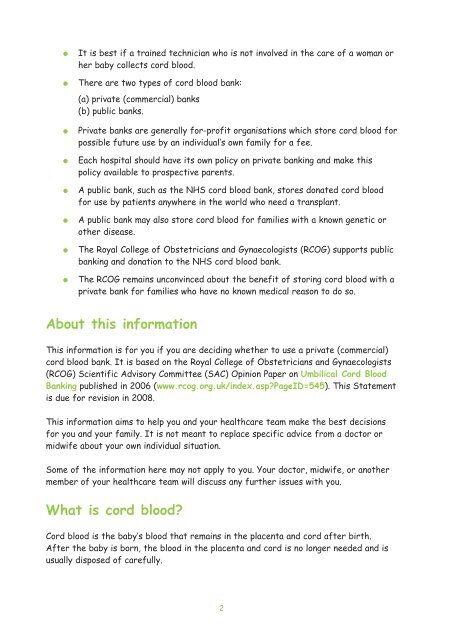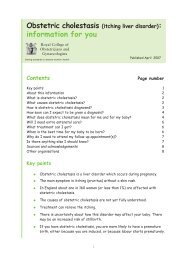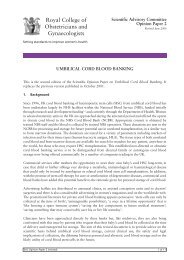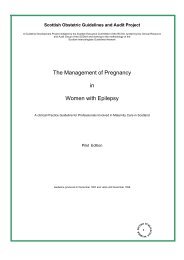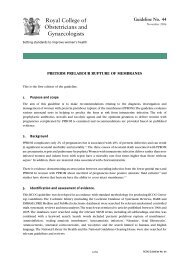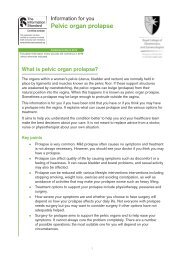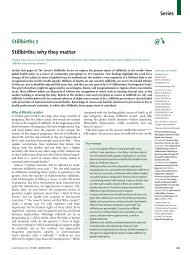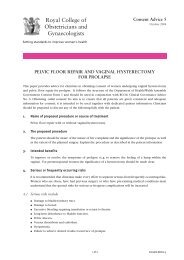Cord blood banking - information for parents
Cord blood banking - information for parents
Cord blood banking - information for parents
You also want an ePaper? Increase the reach of your titles
YUMPU automatically turns print PDFs into web optimized ePapers that Google loves.
●<br />
●<br />
●<br />
●<br />
●<br />
●<br />
●<br />
●<br />
It is best if a trained technician who is not involved in the care of a woman or<br />
her baby collects cord <strong>blood</strong>.<br />
There are two types of cord <strong>blood</strong> bank:<br />
(a) private (commercial) banks<br />
(b) public banks.<br />
Private banks are generally <strong>for</strong>-profit organisations which store cord <strong>blood</strong> <strong>for</strong><br />
possible future use by an individual’s own family <strong>for</strong> a fee.<br />
Each hospital should have its own policy on private <strong>banking</strong> and make this<br />
policy available to prospective <strong>parents</strong>.<br />
A public bank, such as the NHS cord <strong>blood</strong> bank, stores donated cord <strong>blood</strong><br />
<strong>for</strong> use by patients anywhere in the world who need a transplant.<br />
A public bank may also store cord <strong>blood</strong> <strong>for</strong> families with a known genetic or<br />
other disease.<br />
The Royal College of Obstetricians and Gynaecologists (RCOG) supports public<br />
<strong>banking</strong> and donation to the NHS cord <strong>blood</strong> bank.<br />
The RCOG remains unconvinced about the benefit of storing cord <strong>blood</strong> with a<br />
private bank <strong>for</strong> families who have no known medical reason to do so.<br />
About this <strong>in<strong>for</strong>mation</strong><br />
This <strong>in<strong>for</strong>mation</strong> is <strong>for</strong> you if you are deciding whether to use a private (commercial)<br />
cord <strong>blood</strong> bank. It is based on the Royal College of Obstetricians and Gynaecologists<br />
(RCOG) Scientific Advisory Committee (SAC) Opinion Paper on Umbilical <strong>Cord</strong> Blood<br />
Banking published in 2006 (www.rcog.org.uk/index.asp?PageID=545). This Statement<br />
is due <strong>for</strong> revision in 2008.<br />
This <strong>in<strong>for</strong>mation</strong> aims to help you and your healthcare team make the best decisions<br />
<strong>for</strong> you and your family. It is not meant to replace specific advice from a doctor or<br />
midwife about your own individual situation.<br />
Some of the <strong>in<strong>for</strong>mation</strong> here may not apply to you. Your doctor, midwife, or another<br />
member of your healthcare team will discuss any further issues with you.<br />
What is cord <strong>blood</strong>?<br />
<strong>Cord</strong> <strong>blood</strong> is the baby’s <strong>blood</strong> that remains in the placenta and cord after birth.<br />
After the baby is born, the <strong>blood</strong> in the placenta and cord is no longer needed and is<br />
usually disposed of carefully.<br />
2


